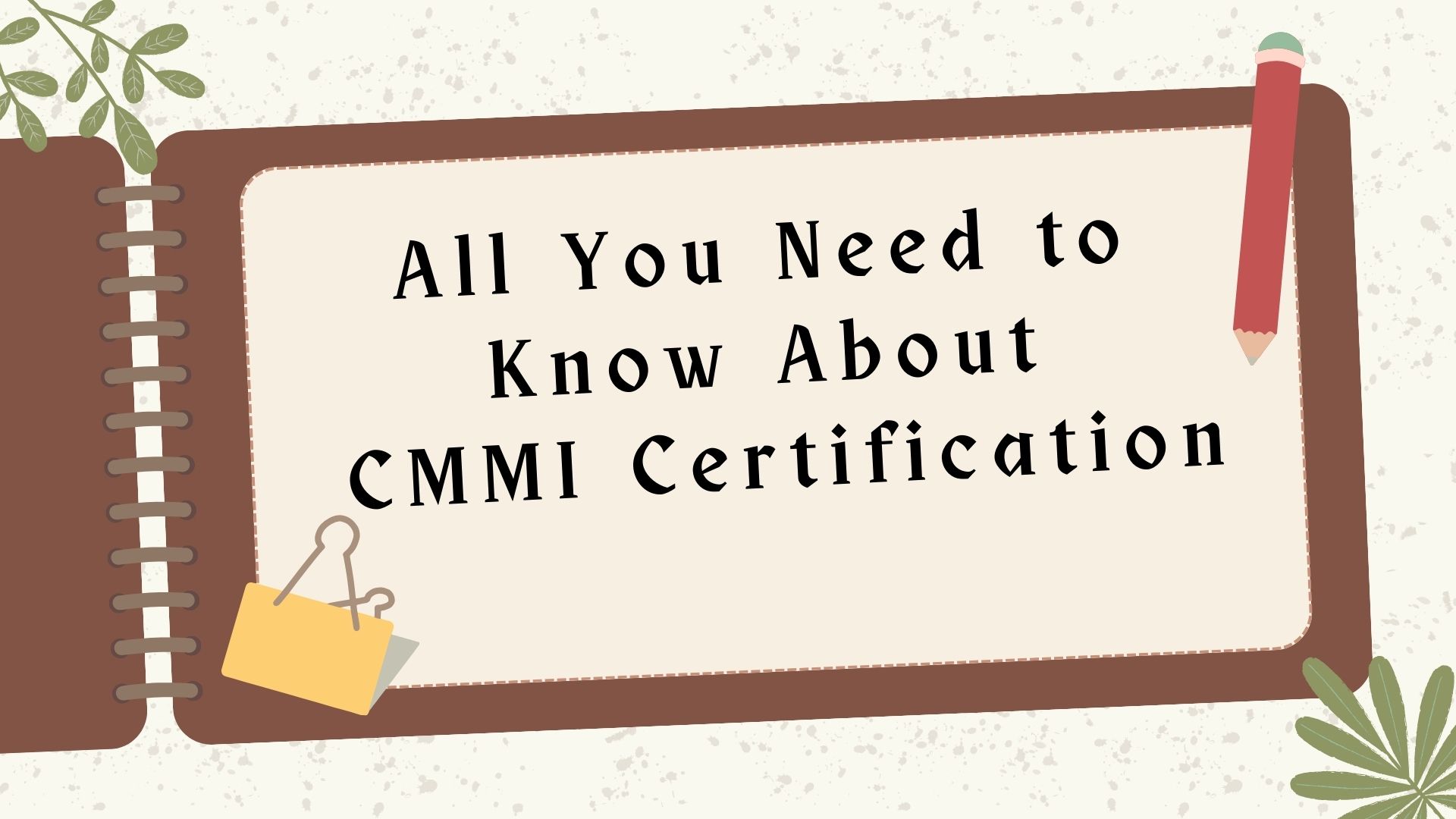In today's highly competitive and rapidly evolving business
landscape, organizations strive for operational excellence, quality
enhancement, and efficiency in their processes. One proven framework that aids
in achieving these goals is the Capability Maturity Model Integration (CMMI).
CMMI certification is a benchmark for assessing and improving organizational
processes, providing a structured approach to process improvement. This article
delves into the significance of CMMI certification, its framework, benefits,
and the process of achieving it.
What is CMMI?
CMMI, developed by the Software Engineering Institute (SEI)
at Carnegie Mellon University, is a process level improvement training and
appraisal program. It was initially created for software development but has
since expanded to cover a variety of domains such as systems engineering,
product and service development, and supplier management. The model provides
organizations with the essential elements of effective processes, which improve
their performance.
The CMMI Framework
The CMMI framework is structured into five maturity levels,
each representing a different degree of process capability:
1. Initial (Level 1): Processes are unpredictable, poorly
controlled, and reactive. Success in such organizations is often due to
individual effort rather than systematic processes.
2. Managed (Level 2): Processes are characterized for
projects and are often reactive. Basic project management practices are
established to track cost, schedule, and functionality.
3. Defined (Level 3): Processes are well-characterized and
understood, and are described in standards, procedures, tools, and methods. The
organization's set of standard processes, which is the basis for Level 3, is
established and improved over time.
4. Quantitatively Managed (Level 4): Processes are measured
and controlled. Organizations use quantitative data to manage process
improvement and understand variations in process performance.
5. Optimizing (Level 5): Focus is on process improvement.
Processes are continually improved based on a quantitative understanding of the
common causes of variation inherent in processes.
Benefits of CMMI
Certification
Obtaining CMMI certification can lead to numerous benefits
for an organization:
1. Improved Quality and Consistency: CMMI helps in
establishing standardized processes, leading to consistent and high-quality
outputs. This consistency helps in meeting customer expectations and
requirements effectively.
2. Enhanced Performance and Efficiency: By optimizing
processes, organizations can reduce waste, streamline operations, and improve
efficiency, resulting in cost savings and better resource utilization.
3. Risk Management: With better-defined processes,
organizations can identify potential risks early and implement mitigation
strategies, thereby reducing the likelihood of project failures.
4. Competitive Advantage: CMMI certification is recognized
globally as a mark of quality and excellence. It can provide a competitive edge
in the marketplace, especially when bidding for contracts or entering new
markets.
5. Employee Satisfaction: Clear and standardized processes
can lead to a better working environment, as employees understand their roles
and responsibilities better, leading to increased job satisfaction and morale.
The Process of
Achieving CMMI Certification
Achieving CMMI certification involves several steps, which
require commitment, resources, and a systematic approach:
1. Gap Analysis: The first step is to conduct a gap analysis
to understand the current state of the organization's processes compared to the
CMMI requirements. This helps in identifying areas that need improvement.
2. Training and Awareness: It is crucial to train employees
and create awareness about CMMI and its benefits. Training ensures that
everyone understands the importance of process improvement and their role in
achieving it.
3. Process Implementation: Based on the gap analysis, the
organization needs to implement or improve processes to align with CMMI
requirements. This may involve documenting processes, establishing procedures,
and deploying tools to support process implementation.
4. Internal Assessments: Conducting internal assessments
helps in evaluating the effectiveness of the implemented processes. It provides
an opportunity to identify any deviations and take corrective actions before
the formal appraisal.
5. Formal Appraisal: The final step is the formal appraisal
conducted by a certified lead appraiser. The appraisal assesses the
organization's processes against the CMMI model and determines the maturity
level achieved.
6. Continuous Improvement: CMMI is not a one-time activity
but a continuous process. Organizations should strive for ongoing improvement
to maintain their certification and advance to higher maturity levels.
Challenges in
Achieving CMMI Certification
While the benefits of CMMI certification are significant,
organizations may face several challenges in achieving it:
1. Resource Allocation: Implementing CMMI processes requires
a significant investment of time, money, and human resources. Smaller
organizations, in particular, may find it challenging to allocate these
resources.
2. Change Management: Changing existing processes and
adopting new ones can be met with resistance from employees. Effective change
management strategies are essential to ensure buy-in from all stakeholders.
3. Maintaining Momentum: The journey to CMMI certification
can be long and arduous. It is crucial to maintain momentum and keep the team
motivated throughout the process.
4. Complexity of Implementation: The CMMI framework can be
complex, and understanding and implementing all its aspects require expertise.
Organizations may need to hire external consultants to guide them through the
process.
Conclusion
CMMI certification is a powerful tool for organizations
aiming to improve their processes and achieve excellence. By providing a
structured approach to process improvement, CMMI helps organizations enhance
quality, efficiency, and performance. While the journey to certification may be
challenging, the long-term benefits make it a worthwhile investment.
Organizations that embrace CMMI are better positioned to meet customer
expectations, manage risks, and stay competitive in the ever-evolving business
landscape.

